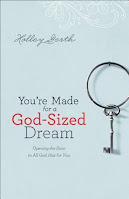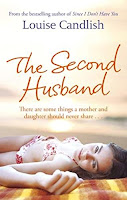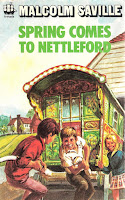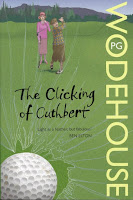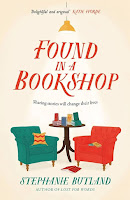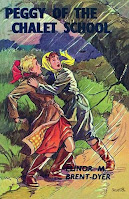 |
| (Amazon UK link) |
I liked the book very much when I was younger, and was then a bit disappointed when I read it as an adult in Armada paperback edition. I understand that although there are some cuts, they’re minor and thus make no different to the story; but even minor cuts can make the action happen a bit too fast, and may lose some conversations or other activities that help build characterisation.
And it’s the characters that make me continue reading - and rereading - this series. The storylines, such as they are, tend to be a bit predictable and sometimes repetitive. But the people change, and Elinor M Brent-Dyer created some believable, likeable folk - even if she did sometimes forget how old they were, or who they were friendly with, over the course of the series. I have a hardback edition now; I don’t recall when I acquired it, but that’s the one I’ve been reading this time.
The last time I read this book was in 2011, but although I'd forgotten a lot of the detail, I recalled the outline of the story.
Peggy Bettany is the main character in this book; oldest daughter of Dick and Mollie Bettany, she’s just turned 16. We meet her visiting some new folk, recently arrived in the area. Polly is around Peggy’s age and Lala (Alice) a couple of years younger. They have been rather running wild and are not at all respectful of their mother, so their father has insisted they go to boarding school. After talking to Peggy they ask if they can go to the Chalet School, which is currently located on a small island off the Welsh coast.
Peggy escorts Polly and Lala on the long train journey to the school, as well as her own young sisters Bride and Maeve. And it’s something of a chapter of accidents. Two purses are lost, a train is delayed, and then a porter, trying to be helpful, pushes them onto the wrong train. There Peggy meets a helpful girl around her age, which begins a sequence with a somewhat unlikely coincidence…
Finally at school, Peggy is given an unexpected honour, and arouses the jealousy of Eilunedd, a girl in what’s known as the ‘special sixth’, a class specialising in just one or two subjects rather than taking everything. Eilunedd is the kind of person who broods and bears grudges, and although it takes her a while, she does something quite unpleasant towards the end of term.
Meanwhile Polly has quite a hard time settling into school and following the rules. Lala, more easygoing, makes friends and doesn’t have any problems despite being with rather younger girls. Then a talent of Polly’s is discovered and discussed, and she gradually realises that school isn’t so bad after all. Polly and Lala don’t have all that much of a story other than at the beginning; but then the book is mainly about Peggy rather than the new girls.
It’s not the greatest of the books, but I like Peggy, and her friends, and I liked it better on reading this time than I did before. Hardbacks of this are quite rare now, and the 'Girls Gone By' full edition is out of print and quite expensive second-hand. Armada paperback versions are sometimes found inexpensively in charity shops, and certainly worth having if you don't have access to a full edition.
Intended originally for teenagers, this seems to appeal more to adults like me who recall the series with nostalgia from our youth.
